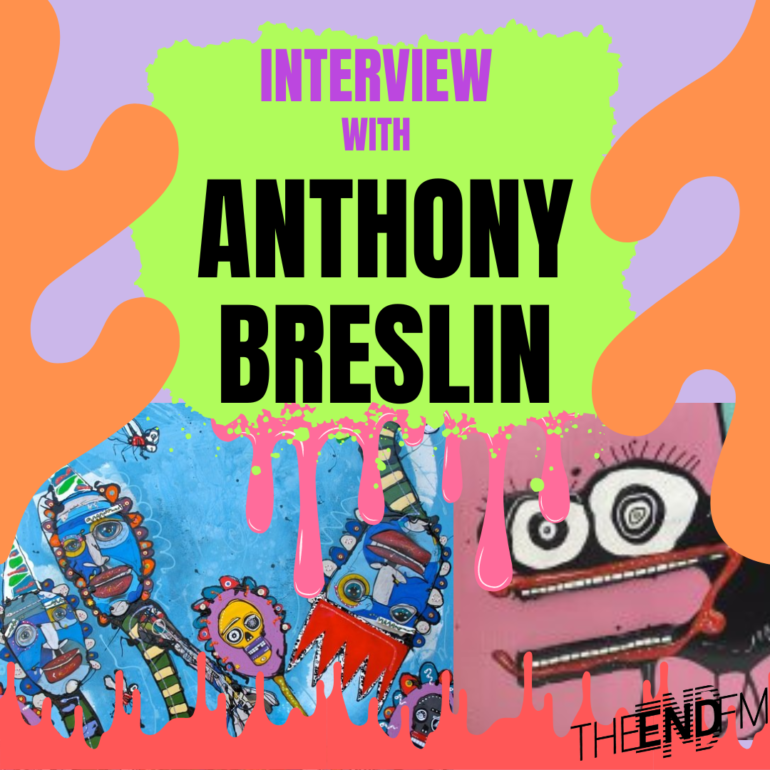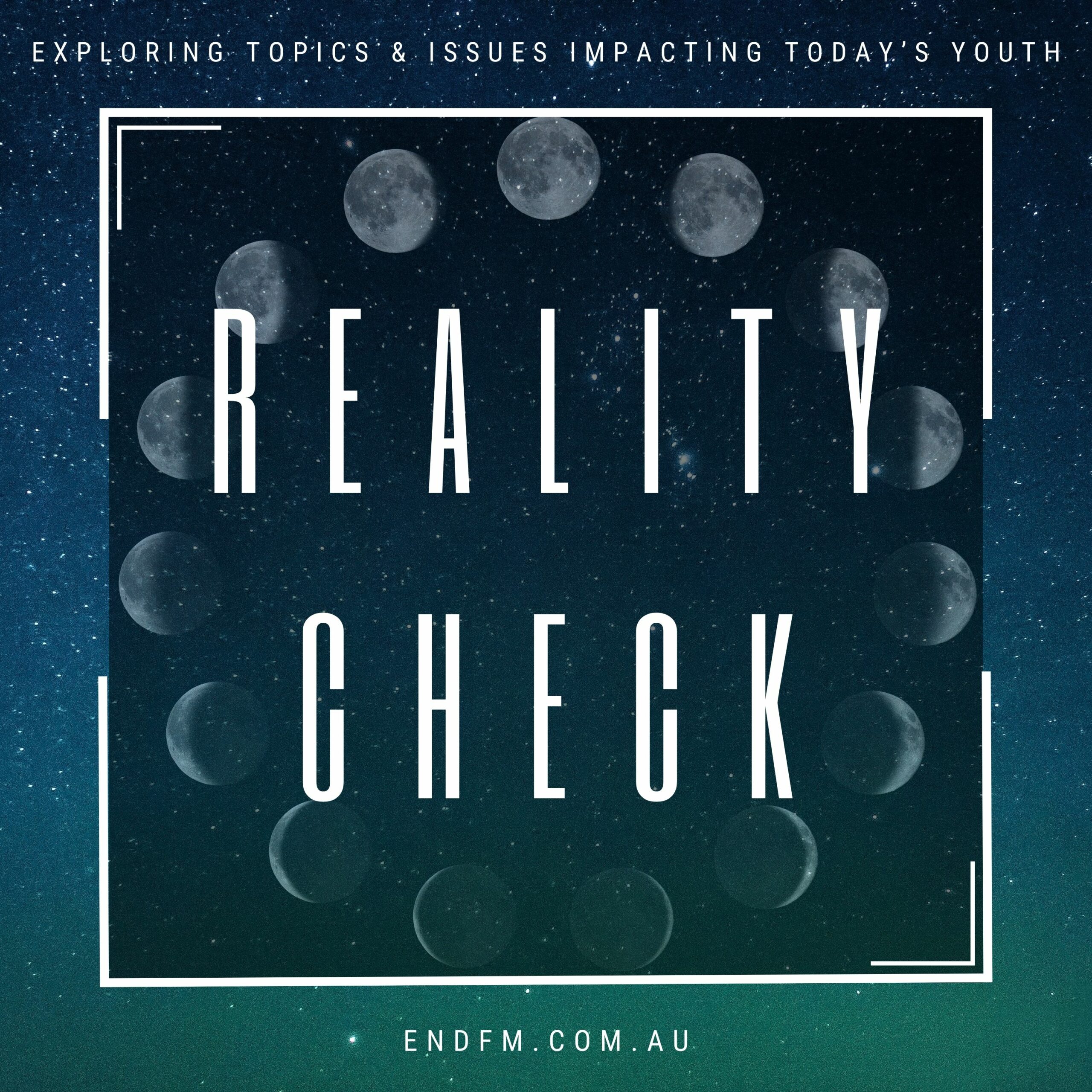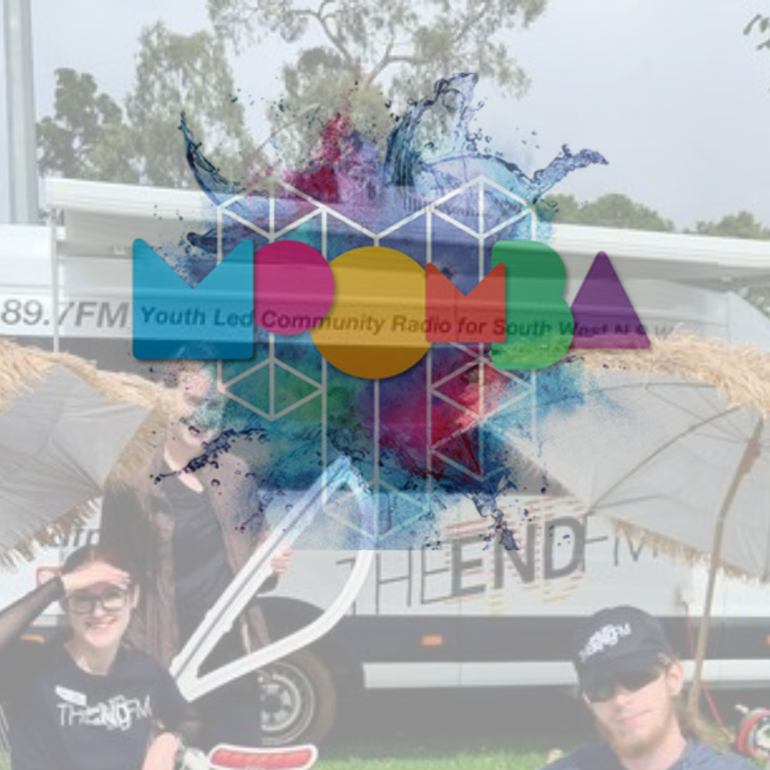
Reality Check Episode One – Life After Death

The first episode of THE END FM’s Reality Check podcast series explores what the people of Deniliquin believe happens after we experience the irreversible cessation of all functioning – death. From different cultures to religions, the afterlife, or lack thereof, is explained and the traditions around a death in this world, a fascinating topic for listeners, conveniently wrapped up in one episode.
Transcript:
LITICIA ROSS: The End FM acknowledges the traditional custodians of the land on which this content was created. The Wamba Wamba Perrepa Perrepa people and pay our respects to their elders, past, present, and future.
[INSTRUMENTAL PIANO MUSIC]
(Voice Over) OLIVIA DUFFEY: Some of us go to heaven or hell, some of us become ghosts. Some of us are reincarnated, and some of us don’t go anywhere at all. It really depends on what you believe happens after we experience the irreversible cessation of all functioning, death. Hi, my name is Olivia, and welcome to the first episode of Reality Check. A podcast created by THE END FM. Today, we are talking about death and beyond. Death is a part of our everyday lives. It is something that can be expected and unexpected. But it is something that affects everyone at some point in their lives. We all have a similar understanding of what happens when we die. We know that a person becomes a body when their life is gone we know that those bodies start to decompose, and we know what happens if that body is buried, cremated, or even mummified as the ancient Egyptians did. But it is what happens after you die that people don’t often agree on. Everyone has a different opinion, often relating to their religion, or their upbringing and experiences, or even Hollywood’s depiction of it. So with what seems like a million theories out there, I wanted to ask the question, what do you think happens after we die? Here is what the people of Deniliquin, had to say.
CARLEE RUNDEL-GORDON: I do think that we’re all energy, we’re all vibrating matter. And energy doesn’t disappear. It just changes its form. So the energy around us probably has some souls in there as well.
ANTHONY ZIELKE: Because I’m Aboriginal, I think we go to the dreamtime, that’s our afterlife.
PAM ELLERMAN: Well, I would like to think that my soul would just float away like a bird. And I really don’t care what they do with my body, because it’ll just be as free as a bird as well.
[INSTRUMENTAL PIANO MUSIC]
(Voice Over) OD: So what do different religions and cultures believe? Next, we will hear three different perspectives for various members of the Deniliquin community.
ARUNGZEB (ZAIB): My name is Zaib and am a Muslim. What most people believe in our culture in Muslim culture or from where I am from South Asia. Well, it’s pretty much similar to Christianity, which I think and that is that you will be born again, there’s an afterlife, and there will be a day of judgement, which is one of the fundamental beliefs in Islam as well.
OD: So tell me a little bit more about that.
Z: You were created by God, there are souls which are created, and then you were sent to the world, and that process has been described in our holy books Quran, which is like every step of the way, how you were born. My personal interpretation could be slightly different as a student of science, either it was Adam or atom. But all that process, the steps that how you were born, in the belly of your mother, all the steps that create bones and flesh, like that’s all explicitly explained, in Quran, like in 14th century, and then there was the soul, which was given to you by Allah, and then the God puts you in this world, because it’s kind of a test, it’s not forever. And obviously, we live here 50, 60, 100 years to the most or around that. So while this is temporary, this cannot be the end of you, your soul. So what you do here is you are blessed with or you’re given with different situations, there are circumstances you’re given with certain things you’re you’re blessed with certain potentials, you lack certain things, or skills or abilities, and you have to perform your best you have to do your best. Those books, those messages, those have certain guidelines for you that how you are supposed to live and how, what you want to do in life. And according to that you will be judged what you did, on the Day of Judgement basically. And everybody, every soul on the planet will recreate it again, they will have given life again and roughly like everything that you have done you you’ll be shown and you confront or you’ll face God Himself.
OD: How does that help a family process grief?
Z: Even at the time of death, they are reminded of good things the person did and that they will be in a good place even better than this, they’re out of misery and stuff like that. So all the good they have done, they will be like even if it is unnoticed, even if they’re small things they will be they’re being rewarded, and they’re good in a good place now. So that’s kind of a relief.
OD: Finally, are there any misconceptions that you’d like to educate people about?
Z: If you’re sent to hell, that’s not eternal. That’s only up to the limit of your bad deeds, you have to have a certain amount of time in there. And then ultimately, you’ll be in Heaven.
OD: Well, thank you for joining us on our first episode of Reality Check.
Z: Thank you. Thank you for having me.
[INSTRUMENTAL PIANO MUSIC]
FLORENCE LAI: Hi, my name is Florence.
NINE MOK: Hi, my name is Nine.
OD: Can you please tell me a little bit more about what the faith actually is.
FL: So the Baháʼí faith is a global faith founded by the prophet Baháʼu’lláh. He was born in Iran. And he’s brought with him this teaching that the Baháʼí Faith is the latest religion out of all the religions in the world, and that all religions come from one God, and that humanity is one as well.
NM: To add to what Florence just said is that some principles of the Baháʼí Faith, we want to educate mankind the importance of equality between man and woman. And the other principle I want to add as well is the complement between religion and science.
OD: So what do you believe happens after we die?
NM: In our faith, after we pass away, our soul will continue on to the path, and path will be remiss towards God near near closer and closer to God. After we pass away, the degree or difficulty that we are travelling towards God is determined by how we live, how we conduct our life, on this earth, you know, and so we just want to explain a bit how, how can the souls travel to the next world, and how the soul separate out from our body, I use the analogy, the bird broken from the cage. So the cage is like our body and then this bird is like a soul that fly towards God.
FL: Everyone has a soul. We have, you know, the physical self and our spiritual self. And we believe that a spiritual self is everlasting. So once we die, like it continues on this journey towards God. Basically, you know, we were placed on this earth so that our soul can acquire the capacities and powers to continue our journey. However, you know, it requires education and the choices that we make in this world in order to have their powers realised. The body returns to we say, the world of dust and the soul moves on to spiritual world.
OD: Just finally, for both of you, what is something about the faith or the process of death that people perhaps don’t understand or sometimes get wrong?
FL: We believe that death is actually a messenger of joy, Baháʼu’lláh sees death as the messenger of joy. Also, another thing that we believe is like God is a source of all good. So on this journey towards God, we are leaving this world and moving on to worlds unimaginable where we can actually meet the souls of our loved ones and those that we’ve interacted with and have formed close bonds with. So it’s really, it’s a messenger of joy.
NM: We still can say a prayer for them. And any message that we want to praise them, they can still hear us. And we also can communicate to them through prayers. Yes.
FL: Of course, it is sad for those that we leave behind. But because we are journeying on to meet God, our Creator, our maker, that is actually a happy occasion.
OD: Well, thank you again for joining me.
FL: Thank you for having us.
NM: Yes. Thanks for having us.
[INSTRUMENTAL PIANO MUSIC]
CHRIS TAYLOR: My name is Chris Taylor, and I’m the pastor at the Baptist Church here in Deni.
OD: So what do you believe happens after we die?
CT: From a Christian perspective, the Bible teaches that there really only two options, Heaven or Hell. In simple terms, Heaven is a reward, if you like, for those who live according to God’s way, and Hell, on the other hand, is a punishment for not living God’s way. If I can elaborate on that a little bit, the Bible teaches that everybody has sinned, and really that’s just another way of saying everybody has rejected God’s way of living. That’s really what sin means, and Sin is an offence to God. And we’re told that the payment of our Sin is death and death in the Bible often refers to an eternal death, which means Hell itself. It’s a harsh reality, but it’s the same as our country in Australia, if I break the law, I pay a penalty. But the good news is that God has provided a way for us to avoid the punishment of Hell. And it is only really through faith in Jesus that we can actually go to heaven. So we do have a choice at the end of the day.
OD: And so what part of us actually goes to Heaven or Hell, I assume we don’t take our bodies?
CT: Well, we will have new bodies, the way we understand that when we’re in Heaven, or Hell will be conscious, we will understand, we will have, the Bible talks about us as having bodies. But I don’t think it’s it’s not going to be our literal human body, but it is bodies. And that’s where the Bible doesn’t say a lot. It doesn’t describe the things that sometimes we want to know. But we will have bodies.
OD: Have you come across any misconception about the afterlife you’d like to educate us on?
CT: I think there are three basic ones. And I think the biggest one is that the afterlife doesn’t exist, that when we die, that’s it. There’s Oblivion, there’s nothing beyond this life. So there is definitely an afterlife from a Christian perspective. There’s a couple others too, and one of them is it’s the reverse. So Heaven is going to be a terrible place to be because it’s all about obeying rules, and God is just a cruel taskmaster that won’t let us have any fun. And in Hell they think is going to be one big party, and we can do what we like. So I think that’s a big misconception. But I think the third one is that Heaven is for people who have done more good than bad. And I think this is a really important one. Most of us think we’re good people, most of us think we’re going to go to Heaven, because we’re generally good. And that Hell is only for the really, really bad people, the murderers, the rapists, the child abusers, and so on. The Bible actually teaches really, it’s not our good work to get into Heaven, but it’s actually the work of Jesus, the good work of Jesus. And if we put our trust in Jesus, and what he’s done for us, then we can go to heaven for eternity and be with God. That’s bottom line.
OD: Thank you so much for joining us.
[INSTRUMENTAL PIANO MUSIC]
(Voice Over) OD: So what does Australia’s oldest culture believe?
[INSTRUMENTAL PIANO MUSIC]
KAREN WILSON: My name is Karen Wilson, and I’m a Wamba Wamba woman from the Deniliquin area in the Riverina.
OD: What do you believe happens after we die?
KW: My personal belief of what happens after we die is that our body has no life, and our spirit then goes somewhere else. So it could be that our spirit floats around for a while, it may be that our spirit becomes another living entity, another being maybe, or it becomes part of country or an animal or a rock or something, but our spirit finds its resting place.
OD: And what happens in the community once someone has died, particularly in the local community?
KW: So within Aboriginal communities, you may have heard the term Sorry Business. So Sorry Business is about when somebody passes away. It’s a really important part of the grieving process for Aboriginal people to have an amount of time to be able to give their respects and their coming to terms with the passing of a family member, or community member that they may have had a lot of dealings with. Most of our community members are family members. So it becomes a very important time to process what is the impact on the community of losing that person, the knowledge they have, the role they’ve played not just within your family, but potentially within the wider community, if they’re a knowledge holder, if that knowledge has been shared, or has it been passed on to the right people, has that knowledge gone, and we don’t have access to that anymore. That’s what that is cultural, but it’s also social. So knowing who belongs to whom, who in the mob can be with somebody else from a different mob. There’s a lot of layers of that cultural knowledge that I think people don’t understand in the social context of being an Aboriginal person and living in community.
OD: What are some of the main traditions when it comes to Sorry Business in the local Indigenous community? What does that look like?
KW: So Sorry Business is often where businesses or organisations will close, people will have days off and it could be extended days off, not just the day of the funeral. There’s a whole process around the grieving and the family that come to the home community. They may come from different parts of the country, different parts of the state. Hosting family, the implications of that interrupting and disrupting schooling, work. Roles within the family to take on different activities within Sorry Business, so providing food, providing a place for other people to stay, engaged in the actual the ceremony of letting that person go, which is a funeral, but also family gatherings. There’s a lot, there is a lot that happens that people may not understand or be aware of. There’s a lot of family obligation and responsibility obligation for Aboriginal people is about responsibility and respect, not something you have to do something that you want to do, and it’s your role to do.
OD: And how can the general public better acknowledge and interact with the Indigenous community in relation to Sorry Business?
KW: I think it’s a real personal thing around personal relationships as well. So acknowledging that the person that you have a friendship or a work relationship with may not be available or around for a longer amount of time that you may not be able to engage with them because of their family and community responsibilities. So they may be off work, maybe a week or so. So the way I think is just to acknowledge that that does happen. And that there’s a lot of family and community stuff happening that has taken and should take the focus of that person. And on a personal level, I suppose just touching base with them to see if they’re travelling, okay, because there’s lots of layers of community and family responsibilities that is overwhelming.
OD: Going back to the topic of the afterlife, is there a connection between the living and the dead?
KW: I believe there is. I feel that there, and I feel like on a physical level by smell, by different senses, that there are people around me that aren’t leaving. Also a lot of people in my life that, so my father and who has passed and my son who has passed actually leave me little tokens of recognition, things that I know keep that connection between us. So yeah, there, I believe there is still connection between the spirits. So my spirit that I carry around with me, I believe, has been around before whether it’s being in a living human entity form or not. And that connection, I think, transfers between space and time. Yeah, that’s what I think.
OD: And finally, is there anything that you would like people to know about?
KW: I think the most important thing for all of us is to respect each other’s beliefs, and to actually open up our minds around just because I haven’t experienced it doesn’t mean that it potentially hasn’t happened for somebody else. So I think that’s a really key learning to take away from other people’s spirituality, beliefs, system. None of us really know what happens, we haven’t experienced it in this form at this present time. And I do believe that there’s channels or connections where people are sent messages or have insight into an afterlife or or a parallel life and I think we should be open to what messages we receive from there.
OD: Well, thank you so much for joining me on our very first episode of Reality Check. That was a very interesting insight and a great key message to take away from that.
KW: Thanks, Olivia.
[INSTRUMENTAL PIANO MUSIC]
CREDITS: MY NAME IS OLIVIA, PRODUCER AND EDITOR OF REALITY CHECK A PRODUCTION OF THE END FM MUSIC IS BY ANTTI LUODE WHO YOU CAN FIND MORE OF ON SOUNDCLICK.COM. THANK YOU TO ALL THOSE WHO CONTRIBUTED TO THIS EPISODE OF REALITY CHECK. TO FIND OUT MORE ABOUT THE PODCAST OR THE END FM VISIT ENDFM.COM.AU YOU OR FOLLOW US ON FACEBOOK, INSTAGRAM AND TIKTOK OUR HANDLE IS @ENDFM.COM.AU

